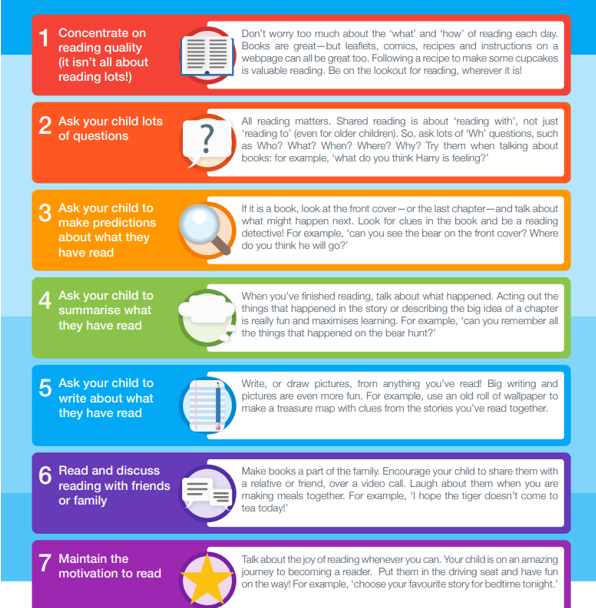How to help your child at home
The most important way you can help your child is to ensure they attend regularly, eat a nutritious breakfast and get plenty of sleep.
You can also help by talking to them about what they have been doing in school, hearing them read and supporting them with their homework tasks. Homework is set regularly throughout the year in accordance with the age and ability of the children- please see your child’s class page.
Supporting Children’s language skills
The development of early language skills provides a foundation for learning and is an important driver of later life outcomes.
“A child’s early language and communication skills are not just the foundation of their literacy, but influence a lifetime of social, emotional and economic outcomes as well.”Jonathan Douglas CBE, CEO of the National Literacy Trust
One in four children who struggle with language at age 5 do not reach the expected standard in English at the end of primary school. Children with a poor vocabulary at age five are more than twice as likely to be unemployed at age 34.
What can you do to support children’s language skills?
Talk, talk and more talk!
*Switch off the TV, ipads, mobile phones
*Talk to your children about their day, what they/you have been doing
*Encourage questioning
*Show you are interested in their conversations
*Provide opportunities for children to speak and listen to others e.g preparing meals, playing together, tidying up, getting ready to go out.
*Expose children to a range of vocabulary by exploring new places e.g the park, zoo, library, museums.
*Share books with your children and listen to them read. It is important to read to your children before they can read and to begin reading with them as soon as they can.
Helping your child with reading at home

